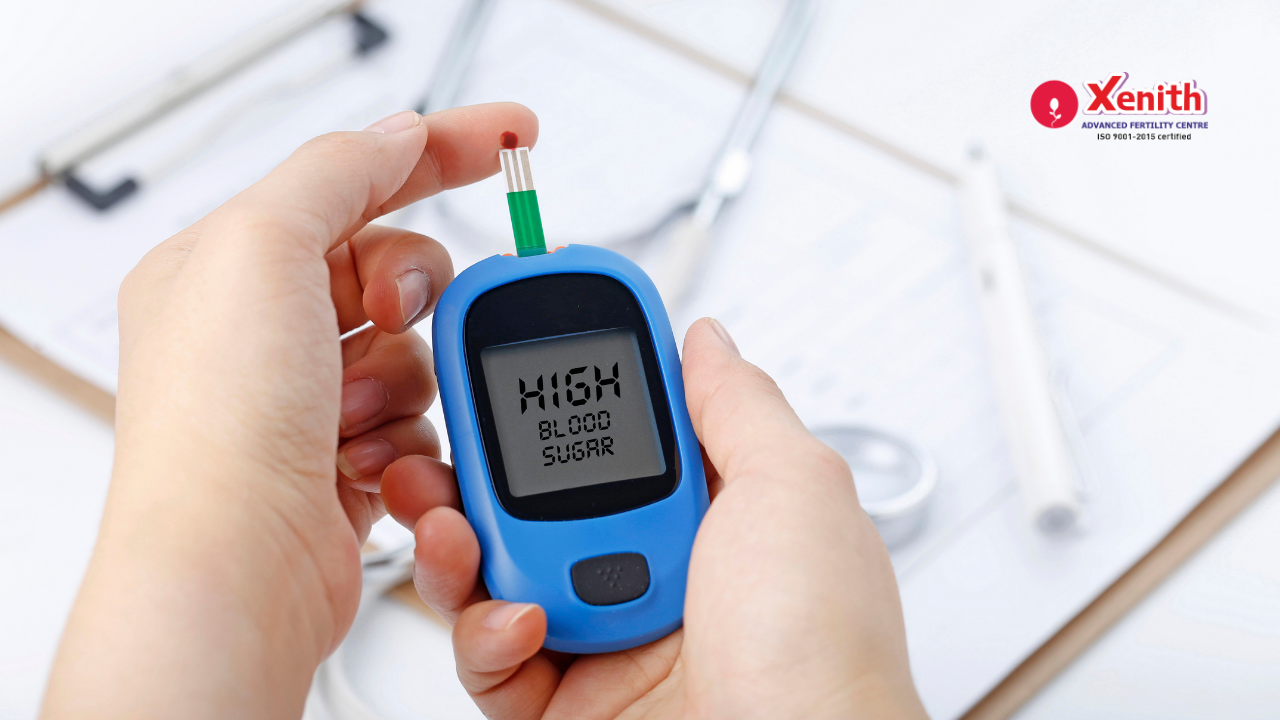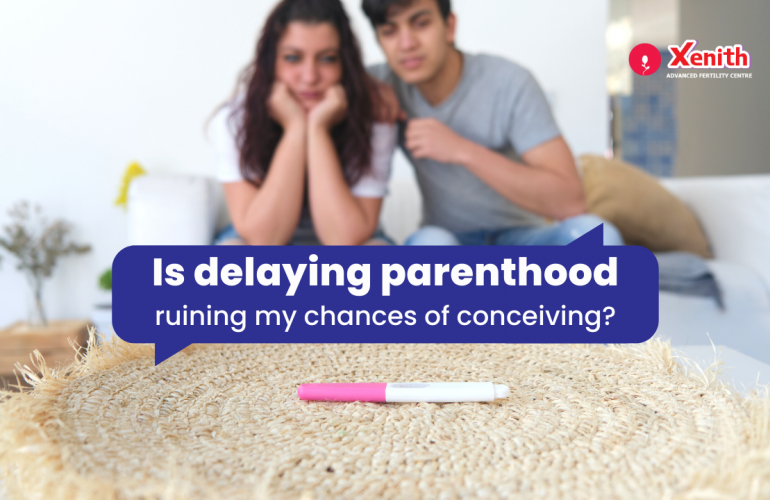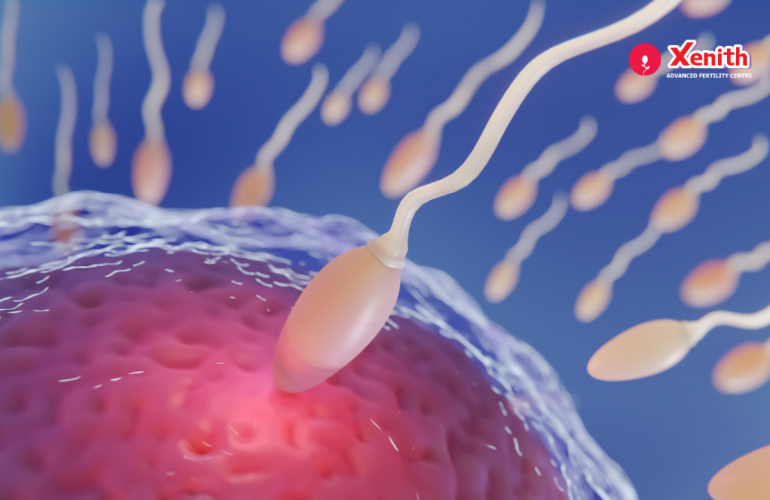Meet Anita – a type 2 diabetic who has been more than eager to become a mother. With India having the highest number of diabetics in the world, Anita’s story is not unlike some other women. Having diabetes has made it that much harder for Anita to conceive, although not impossible. And Anita is on the path to becoming a mother through IVF.
If you or someone you love has diabetes and are finding it difficult to get pregnant, read on. There’s hope for even the toughest cases thanks to science and the understanding it has given us of diabetes, as well as Assisted Reproductive Treatment (ART).
First, what exactly is diabetes?
Diabetes is a condition that can be described as the mismanagement of blood sugar in the body. When we finish a meal, the carbohydrates that we consume are broken down into glucose. Glucose is the primary source of energy for our bodies. Glucose enters the bloodstream prompted by insulin, a hormone produced by the pancreas. Insulin allows glucose to enter the cells in our bodies to provide energy.
Excess glucose is converted to glycogen and is stored in the liver. In between, when insulin levels are low in the body, glycogen is converted back to glucose and released in the cells.
In the case of diabetics, the body has a resistance to the action of insulin and later does not produce enough insulin (type 2 diabetes) or produces extremely little or no insulin at all (type 1 diabetes). There are several health complications associated with diabetes. It is a progressive disease that can be controlled through a proper diet and exercise. However, if diabetes is not properly treated, the high and low blood glucose levels can silently cause damage to the organs of the body.
Diabetes can interfere with fertility and reproductive health. How much diabetes has impacted your fertility can depend on a number of factors such as the number of years you’ve been a diabetic, and how well you have your diabetes under control, including what type of diabetes you have – type 1 or type 2, as well as many other factors. No two cases are alike.
Here’s how diabetes may affect men and women differently impacting procreative health.
Diabetes and Male Fertility
Prolonged and uncontrolled diabetes may impact men’s reproductive health in the following ways:
- The ability to maintain an erection. Diabetes can cause damage to the nerves leading to decreased flow of blood which can result in sexual dysfunction.
- Low libido. Uncontrolled glucose levels can lead to less energy levels. Men may feel too tired to have sex or lose interest.
- Premature ejaculation. Several studies show that premature ejaculation is more prevalent in men with diabetes than in men who don’t have diabetes.
In type 2 diabetes, men may have low sperm concentration in semen. Diabetes can also affect the motility of sperm making it more difficult for sperm to travel to the fallopian tube for conception to take place. Both type 1 and type 2 diabetes are associated with structural damage to the sperm and its DNA.
Diabetes and Female Fertility
Women may experience the following complications which may lead to infertility issues or the ability to carry a baby to full term.
- Irregular menstrual cycles due to the metabolic effects of type 1 and type 2 diabetes on the hypothalamus, pituitary gland, and ovaries.
- Higher susceptibility to infections in the genitourinary tract can lead to problems in the fallopian tubes.
- Pregnancy complications may arise due to high blood glucose levels in the mother’s body. Chances of miscarriage and congenital defects are higher in women with diabetes.
- Loss of interest in sex. As in the case of men with diabetes, women too may experience tiredness and lose their appetite for sexual intimacy.
Women with type 1 diabetes may also experience an absence of ovulation. According to a study published in Fertility and Sterility (2012), a large majority of women with Polycystic Ovary Syndrome (PCOS) – about 65% to 70% — are insulin resistant. PCOS usually co-exists with obesity and diabetes. All three conditions together can make fertility even more difficult.1
What can be done to improve fertility when you have diabetes?
If couples have tried unprotected sex for more than six months to a year, we usually recommend they undergo comprehensive fertility tests. Some tests will monitor your sugar levels, some will monitor your hormones while others may be diagnostic. Based on the results, our doctors will prescribe a tailor-made plan to resolve infertility issues. Some of the individualized procedures we may recommend are:
- Medications to treat infections, stimulate the ovaries, and treat problems like erectile dysfunction and premature ejaculation.
- Corrective procedures such as surgery to remove ovarian cysts or uterine fibroids or tubal disease.
- Assisted Reproductive Treatment (ART):
- Sperm retrieval procedures such as microsurgical sperm retrieval or intracytoplasmic sperm injection (ICSI)
- Intrauterine Insemination (IUI)
- In vitro fertilization (IVF)
- Donor sperm or egg
How can diabetics prepare for IVF treatment?
If blood glucose levels are not in the normal range, the first line of treatment for both men and women is better diabetes management. Getting your blood sugar under control is key. This means stringent monitoring, smart eating, and plenty of exercise. This is extremely important to facilitate conception/implantation and carry a foetus to full term. Schedule an appointment with Xenith Advanced Fertility Clinic if you or your partner have diabetes. Early intervention can help achieve more successful results.




